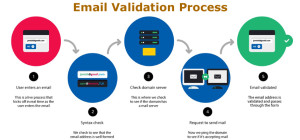 Any business on the internet, whether it’s a simple blog or a large virtual store, needs web hosting. Without hosting, your domain will not be accessible!
Any business on the internet, whether it’s a simple blog or a large virtual store, needs web hosting. Without hosting, your domain will not be accessible!
The question that small entrepreneurs usually ask, especially those who have not gotten into the online environment but have plans for the future, is:
Why would I take a VPS, and not a dedicated server, or shared server?
Perhaps there is not much difference between a VPS (Virtual Private Server) and a dedicated server, but there is a lot of comparison between a shared host and VPS!
To be clear to those of you who are interested in VPS (virtual private server) hosting, you need to first understand what shared hosting is.
What is Shared Hosting?
Shared hosting is a very cheap and ideal formula for small entrepreneurs. It’s cheap because the resources are shared. The problem with shared hosting is that resources can not be shared equally – this is what the hosting provider does, to a lesser or larger extent. A shared host does not guarantee that your site will run under all conditions with too many visitors, because everyone has to share the same server, which implies CPU consumption RAM. This applies everywhere: no matter the unlimited traffic and unlimited space, it does not mean you can do what you want!
What is VPS Hosting?
With VPS, things are totally different. The advantage of a Windows or Linux VPS server is the exact sharing of server resources. Which means you know exactly what you’ve bought, so how many visitors you can have on the site and what the limits are.
The features of a VPS are:
– Assign CPU (processor).To understand better, you need to know that a dedicated server (full server or you can imagine a PC) can be configured to share resources in several mini-computers (which are actually called VPS servers). On a dedicated server, it can be allocated any number of VPSs, within the limits of resources, of course. The main feature of a VPS – the CPU allocation – mans what percentage of the dedicated server processor is allocated to you.
– Memory allocation (RAM).Ram memory plays another important role in choosing a quality VPS. All web applications: WordPress, Joomla, PhpBB, etc. require RAM memory! The more sites (web applications) you have installed, the more you will deplete the RAM memory. In addition, a Xen VPS also offers swap memory (additional memory that helps ram memory to do better in case of overload).
– Isolated space (HDD).With a VPS, even if you do not have hundreds of giga as a dedicated server (in most cases), absolutely all free space and present files are completely isolated from other users. Isolation is done either at software level or using Xen technology, which is more advanced and secure. What should be mentioned is that on a VPS your space will be totally unconnected with the “neighbors”, and only you have access to your resources! This feature prevents the risk of spreading viruses or hackers’ access to web-based software that is poorly designed and used by neighbors on a shared environment.
– Access root (full access to the server).Whether you are talking about a virtual private server (VPS) or dedicated server, your access to the machine is unlimited, which means you can install applications, run applications, and even browse the Internet through the server. In addition, if some more demanding scripts require certain server settings you can setup them manually via root.
– Unlimited number of hosted domains.If you are the owner of a virtual store or of a large online project and opt for VPS, you probably choose this formula because of a lot of resources. Shared hosting comes with many limits, including the number of domains allowed. On VPS (virtual private server) you can install any number of domains and the only barrier that can impede you at one point might be resource depletion. Blogs, forums, etc. are resource-intensive!
– Reinstall the operating system at any time!This is another advantage with a dedicated server or Virtual Private Server, because sometimes we need to reinstall the operating system for various reasons. As a rule, reinstallation can be done manually or by communicating with the technical department.
– Selling hosting further.Yes! You can be a hosting provider at the same time. Apart from the fact that VPS provides the functionality of sites that require resources, you can sell a shared host to recover some of the investment. This technique is very common, but you should always be careful not to have more clients than the server can bear.
These would be some advantages of choosing a virtual private server (VPS) and, of course, considerations that you should think about before choosing a shared hosting.







